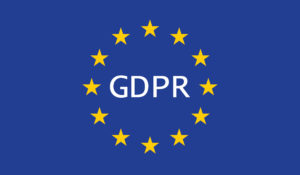

(Ivan Marc/Shutterstock)
It’s hard to believe it’s already been five years since the European Union implemented the General Data Protection Regulation (GDPR), the most far-reaching data privacy protection law at the time. Data suggests that, as the years have passed, consumers have grown to like the law. However, tech companies still have some work to do, as evidenced by Meta’s recent $1.3 billion fine for violating the GDPR.
Before the GDPR went into effect on May 25, 2018, there was no single overarching data privacy law covering Europe. Different countries had different laws, making it difficult for companies to navigate the regulatory landscape. GDPR changed all that by clearly spelling out the requirements that companies (and other organizations) must follow before collecting and using people’s private data.
For starters, companies must gain consent from users to collect and use their data. GDPR required them to store the data securely, and notify people if security is breached. People (that is, European residents) also gained the right to request information on how their data is used from companies. They also gain some power to stop companies from using their data, the so-called (but misnamed) “right to be forgotten” provision.
Under GDPR, companies were required to swiftly respond to requests from people. There were also new restrictions on the movement of data across borders (although inter-European transfers were still allowed). Companies that failed to abide by GDPR rules faced fines equal to up to 4% of their annual revenue.
The law is credited with putting an end to some of the most egregious abuses of big data. Events such as Cambridge Analytica scandal made people skeptical of untamed data collection hoovering. With the Wild West days of big data over (at least in Europe), investments in data governance increased. Instead of making a quick and easy buck exploiting people’s private data, GDPR encouraged companies to demonstrate good data stewardship and thoughtful application of analytics and AI (or more thoughtful, anyway).
The new law quickly became the model for similar data privacy laws in other jurisdictions, including the state of California, where the California Consumer Privacy Act (CCPA) went into effect in January 2020. Other countries and states implemented laws similar to GDPR, although the United States still has not yet enacted a data privacy law at the national level.
After five years under GDPR, things appear to be settling down, and data professionals are figuring out how to navigate around the laws pillars of protection. According to a Piwik PRO survey of 300 marketing executives and decision makers, understanding of GDPR is on the upswing across Europe. The survey found that more than 80% of EU companies find a balance between effective marketing and privacy compliance possible to achieve, a figure almost 20% more than last year.
More than 70% of study participants say they perceive GDPR as being easy to understand, according to the Piwik PRO survey, while nearly 80% say that laws like GDPR are important, up 5% from a year ago. Nearly 60% of companies are using marketing software with servers based in Europe, and about 75% are considering replacing their big tech tools with European alternatives, the survey says.
The data sovereignty aspect of the GDPR recently got Facebook-parent Meta in trouble. On Monday, Meta was fined €1.2 billion ($1.3 billion) by the Irish Data Protection Commission for moving data on European residents to servers based in the US. That is the biggest GDPR fine to date, and comes on top of an $887 million fine assessed to Amazon in Luxembourg and a $267 million fine on Meta’s WhatsApp property, also in Ireland.
The Irish regulator also stated that Meta would no longer be allowed to shared data on Europeans with its business customers in the US under provisions of the Privacy Shield framework. EU and US officials are working on a replacement for that data-sharing framework, called the European Data Privacy Framework, but the officials have not yet finalized the deal and it has yet to go into effect.
While GDPR as a whole “changed the world for the better,” the data-sharing provision of GDPR are nearly unworkable, according to privacy expert Aaron Mendes, the CEO and co-founder of PrivacyHawk.
“International companies have had to set up dedicated cloud architecture within Europe, which requires them to have duplicates of their product and maintain two versions to comply,” Mendes says. “While the spirit of this component of GDPR is to protect people’s data from going overseas where it can be used without the oversight of the European Union, it has just turned out not to be a realistic regulation.”
While Meta’s data-sharing activities may have complied with the new framework, Mendes faults the social media giant for failing to abide by the letter of the law.
“In pursuing profit, rather than comply with or leave the EU, they appear to have intentionally violated this regulation. So they deserve what they got. And they can easily afford it,” he says. “Also, it is widely accepted that Meta has been one of the worst violators of consumer privacy in history over the last 20 years. They have a little regard for consumer privacy and typically do the bare minimum required by law or public sentiment.”
While the tech giants get the biggest fines, not all GDPR violators have deep pockets. Many smaller companies, including dentists, restaurants, and beauty salons, have run afoul of the data privacy law. European data regulators may just be warming up, as they issued a record €1.65 billion in fines last year, a 50% increase from 2021, according to a DLA Piper survey.
Related Items:
Reflections on GDPR Turning Three
2018 – GDPR and the Big Data Backlash
June 13, 2025
- PuppyGraph Announces New Native Integration to Support Databricks’ Managed Iceberg Tables
- Striim Announces Neon Serverless Postgres Support
- AMD Advances Open AI Vision with New GPUs, Developer Cloud and Ecosystem Growth
- Databricks Launches Agent Bricks: A New Approach to Building AI Agents
- Basecamp Research Identifies Over 1M New Species to Power Generative Biology
- Informatica Expands Partnership with Databricks as Launch Partner for Managed Iceberg Tables and OLTP Database
- Thales Launches File Activity Monitoring to Strengthen Real-Time Visibility and Control Over Unstructured Data
- Sumo Logic’s New Report Reveals Security Leaders Are Prioritizing AI in New Solutions
June 12, 2025
- Databricks Expands Google Cloud Partnership to Offer Native Access to Gemini AI Models
- Zilliz Releases Milvus 2.6 with Tiered Storage and Int8 Compression to Cut Vector Search Costs
- Databricks and Microsoft Extend Strategic Partnership for Azure Databricks
- ThoughtSpot Unveils DataSpot to Accelerate Agentic Analytics for Every Databricks Customer
- Databricks Eliminates Table Format Lock-in and Adds Capabilities for Business Users with Unity Catalog Advancements
- OpsGuru Signs Strategic Collaboration Agreement with AWS and Expands Services to US
- Databricks Unveils Databricks One: A New Way to Bring AI to Every Corner of the Business
- MinIO Expands Partner Program to Meet AIStor Demand
- Databricks Donates Declarative Pipelines to Apache Spark Open Source Project
June 11, 2025
- What Are Reasoning Models and Why You Should Care
- The GDPR: An Artificial Intelligence Killer?
- Fine-Tuning LLM Performance: How Knowledge Graphs Can Help Avoid Missteps
- It’s Snowflake Vs. Databricks in Dueling Big Data Conferences
- Snowflake Widens Analytics and AI Reach at Summit 25
- Top-Down or Bottom-Up Data Model Design: Which is Best?
- Why Snowflake Bought Crunchy Data
- Change to Apache Iceberg Could Streamline Queries, Open Data
- Inside the Chargeback System That Made Harvard’s Storage Sustainable
- dbt Labs Cranks the Performance Dial with New Fusion Engine
- More Features…
- Mathematica Helps Crack Zodiac Killer’s Code
- It’s Official: Informatica Agrees to Be Bought by Salesforce for $8 Billion
- AI Agents To Drive Scientific Discovery Within a Year, Altman Predicts
- Solidigm Celebrates World’s Largest SSD with ‘122 Day’
- DuckLake Makes a Splash in the Lakehouse Stack – But Can It Break Through?
- The Top Five Data Labeling Firms According to Everest Group
- Who Is AI Inference Pipeline Builder Chalk?
- ‘The Relational Model Always Wins,’ RelationalAI CEO Says
- IBM to Buy DataStax for Database, GenAI Capabilities
- VAST Says It’s Built an Operating System for AI
- More News In Brief…
- Astronomer Unveils New Capabilities in Astro to Streamline Enterprise Data Orchestration
- Yandex Releases World’s Largest Event Dataset for Advancing Recommender Systems
- Astronomer Introduces Astro Observe to Provide Unified Full-Stack Data Orchestration and Observability
- BigID Reports Majority of Enterprises Lack AI Risk Visibility in 2025
- Databricks Announces Data Intelligence Platform for Communications
- MariaDB Expands Enterprise Platform with Galera Cluster Acquisition
- Snowflake Openflow Unlocks Full Data Interoperability, Accelerating Data Movement for AI Innovation
- Databricks Unveils Databricks One: A New Way to Bring AI to Every Corner of the Business
- Gartner Predicts 40% of Generative AI Solutions Will Be Multimodal By 2027
- Databricks Announces 2025 Data + AI Summit Keynote Lineup and Data Intelligence Programming
- More This Just In…


























